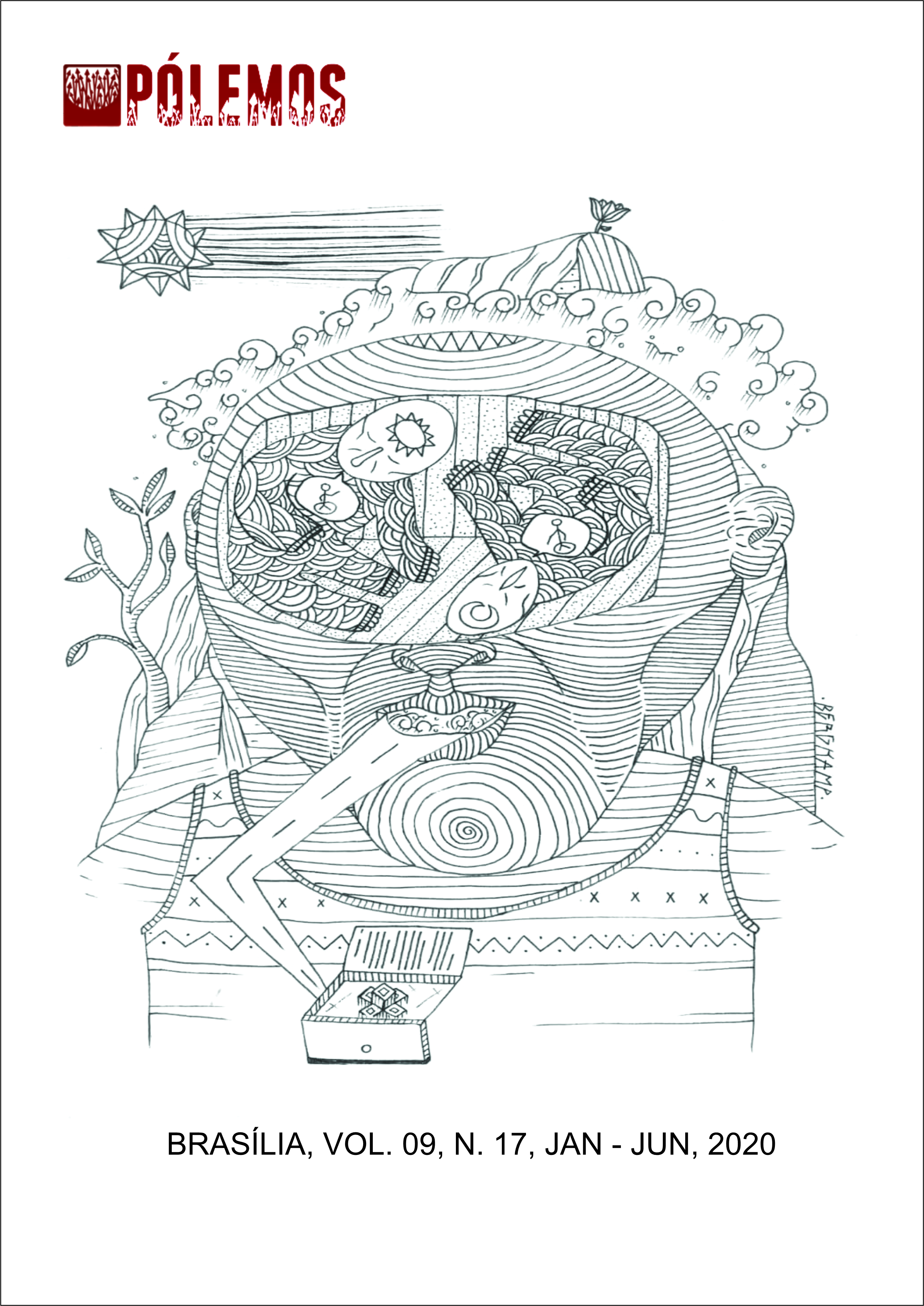GADAMER’S PHILOSOPHICAL HERMENEUTICS AND THE THOUGHT OF ÉMILE BENVENISTE
the language from the functioning of the natural language
DOI:
https://doi.org/10.26512/pl.v9i17.27234Keywords:
Benveniste. Dialogue. Gadamer. Hermeneutics. Language.Abstract
This article aims to present the meaning of language in Gadamer's philosophical hermeneutics and in Émile Benveniste’s thought. Both thinkers, although belonging to different traditions, have similar and complementary points in their views of language. Thus, to achieve this goal, this article is divided into three parts: the first one deals with the presentation of the concept of language in the Gadamerian sense, starting from language itself; the second part consists in a presentation of Benveniste's thought in regard to language, which matches Gadamer’s, but starts from the functioning of the natural language; the last part deals with the relationship between these authors concerning language.
Downloads
References
BENVENISTE, Émile. Problemas de Linguística Geral I. Campinas: Pontes Editores, 2005.
BENVENISTE, Émile. Problemas de Linguística Geral II. Campinas: Pontes Editores, 2006.
GADAMER, Hans-Georg. Verdade e Método I: Traços fundamentais de uma hermenêutica filosófica. 14ª edição. Petrópolis/Bragança Paulista: Vozes/Edusf, 2014, v.1.
GADAMER, Hans-Georg. Verdade e Método II: Complementos e índice. 6ª edição. Petrópolis/Bragança Paulista: Vozes/Edusf, 2011, v.2.
KLEIST, H. “Da elaboração progressiva os pensamentos na fala”. Tradução de Carlos Alberto Gomes. In: Floema, Ano IV, n. 4 A, p.75-80, out. 2008.
NUNES, B. Heidegger. O tempo na narrativa. São Paulo: Editora Ática S.A., 1995.
SCHLEIERMACHER, F. D. E. Hermenêutica: arte e técnica da interpretação. Petrópolis: Vozes, 1999.
Downloads
Published
How to Cite
Issue
Section
License
Copyright (c) 2020 PÓLEMOS ”“ Revista de Estudantes de Filosofia da Universidade de Brasília

This work is licensed under a Creative Commons Attribution-NonCommercial-NoDerivatives 4.0 International License.
Todos os trabalhos que forem aceitos para publicação, após o devido processo avaliativo, serão publicados sob uma licença Creative Commons, na modalidade Attribution-NonCommercial-NoDerivatives 4.0 International Public License (CC BY-NC-ND 4.0). Esta licença permite que qualquer pessoa copie e distribua a obra total e derivadas criadas a partir dela, desde que seja dado crédito (atribuição) ao autor / Ã autora / aos autores / às autoras.


